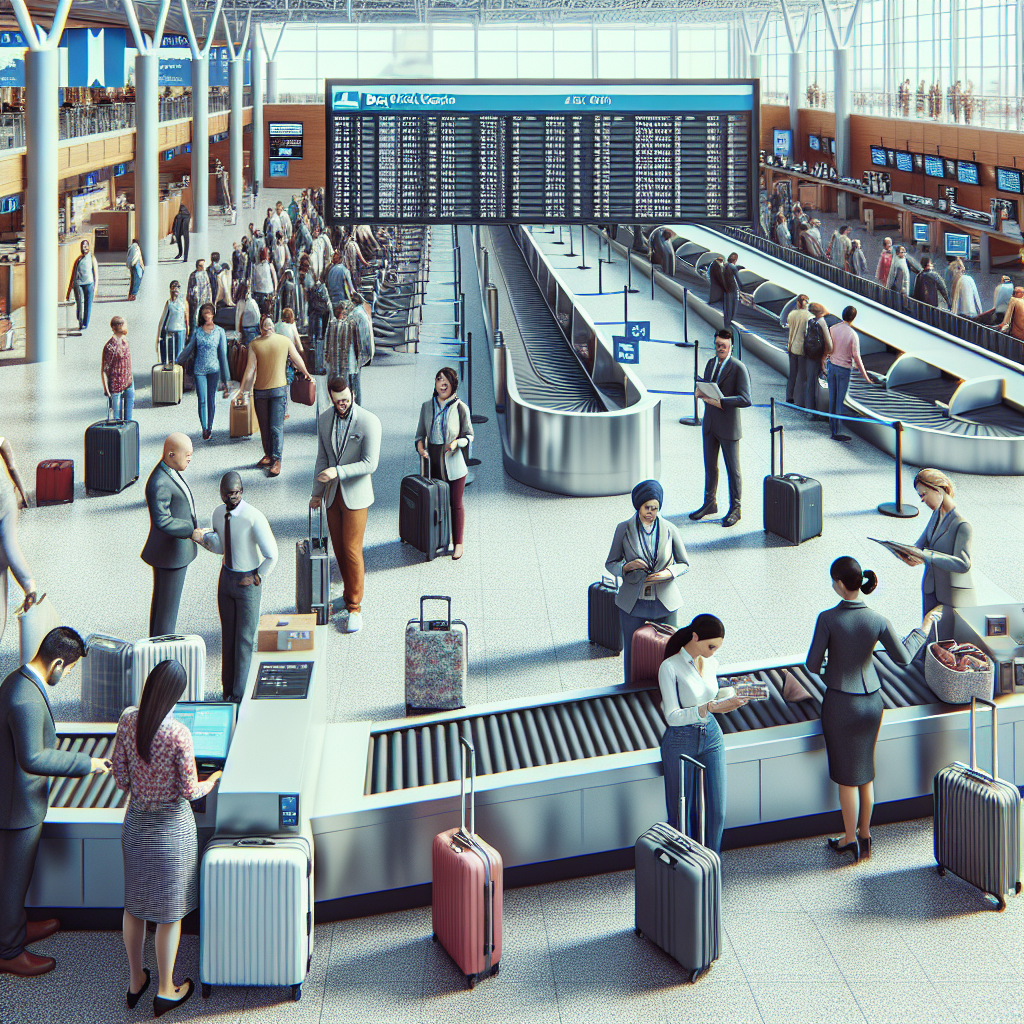The Decline of Free Bag Checks: An Evolving Landscape in Air Travel
In the ever-evolving world of air travel, one trend that has become increasingly apparent is the decline of free checked baggage services. For years, passengers have enjoyed the convenience of checking bags without incurring additional fees, but this luxury is steadily fading as airlines adapt to new economic realities and competitive pressures. This shift in policy reflects broader changes in the industry, with implications for travelers and the airlines themselves.
Historically, free checked baggage has been a hallmark of customer service in the airline industry. Airlines such as Southwest have famously maintained their commitment to offering passengers the benefit of two free checked bags, setting them apart in a highly competitive market. However, as noted in a recent article by the Associated Press, such practices are becoming increasingly rare. Many airlines are now opting to charge fees for checked luggage, a move driven by the need to offset rising operational costs and to boost ancillary revenues.
This transition is not merely a reflection of changing airline strategies but also indicative of broader economic pressures. The aviation industry has faced significant financial challenges in recent years, compounded by fluctuating fuel prices, increased labor costs, and the impacts of global events such as the COVID-19 pandemic. In response, many carriers are reconsidering traditional revenue models, with baggage fees emerging as a straightforward method to enhance profitability without significantly altering ticket pricing.
The shift towards paid baggage services also speaks to the evolving expectations of modern travelers. In today’s digital age, transparency and customization are key, and passengers are increasingly accustomed to paying for services a la carte. This trend is mirrored in other sectors, such as hospitality and entertainment, where consumers are given the flexibility to tailor their experiences to personal preferences and budgets. By unbundling services, airlines can offer more competitive base fares while allowing travelers to choose additional services as needed.
However, this shift is not without its critics. Detractors argue that the proliferation of baggage fees disproportionately affects families and budget-conscious travelers, who may find themselves burdened by unexpected costs. Moreover, the increase in carry-on baggage as passengers attempt to circumvent these fees has led to congestion and delays during the boarding process, affecting overall travel efficiency and passenger satisfaction.
As the industry continues to adapt, it is essential for airlines to strike a balance between economic viability and customer satisfaction. While baggage fees may provide a necessary financial lifeline, airlines must also consider the broader implications for brand loyalty and customer experience. Strategies such as loyalty programs, tiered memberships, or bundled packages might offer solutions that address both airline profitability and passenger expectations.
In conclusion, the decline of free bag checks marks a significant shift in the landscape of air travel, reflecting broader economic trends and changing consumer preferences. As airlines navigate these challenges, the focus must remain on fostering a customer-centric approach that respects the diverse needs of travelers while ensuring sustainable business practices. Ultimately, the key lies in innovation and adaptability, ensuring that airlines can continue to offer value and convenience in an increasingly competitive market.
For more insights on the evolving dynamics of air travel, readers can explore resources such as [Travel + Leisure](https://www.travelandleisure.com), which provides comprehensive coverage on the latest industry trends and travel tips.
